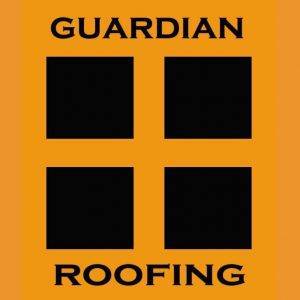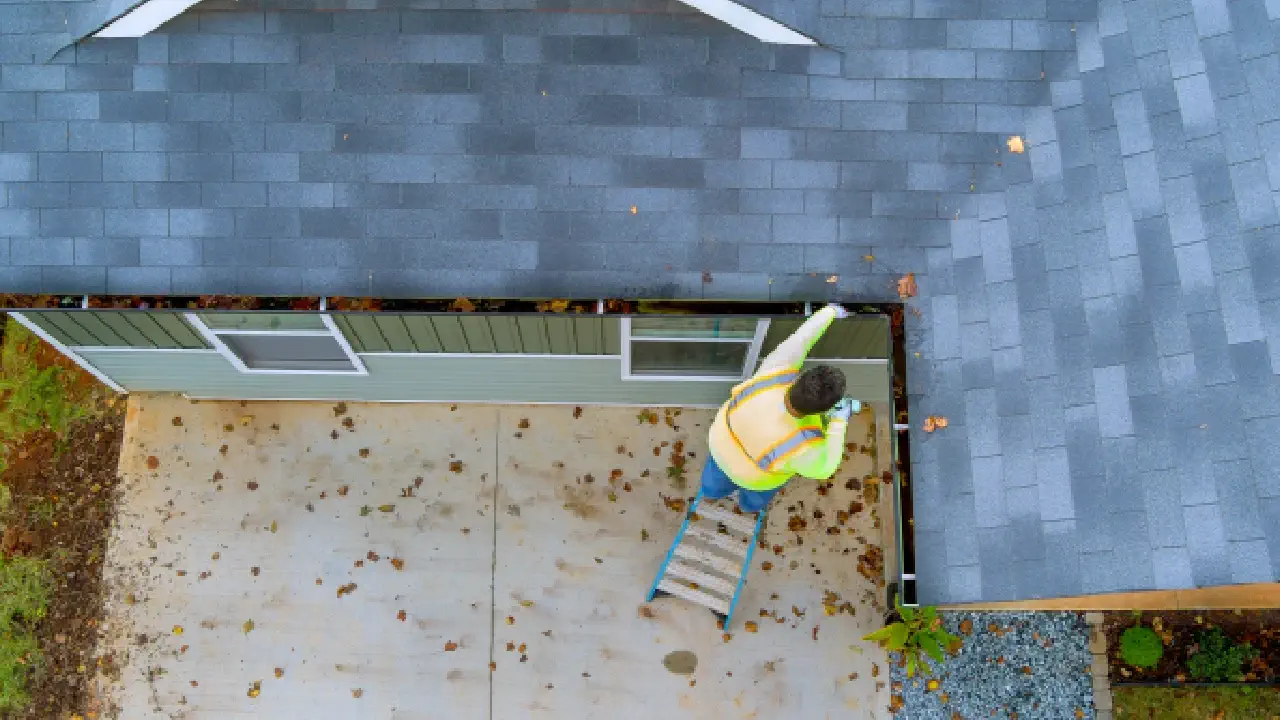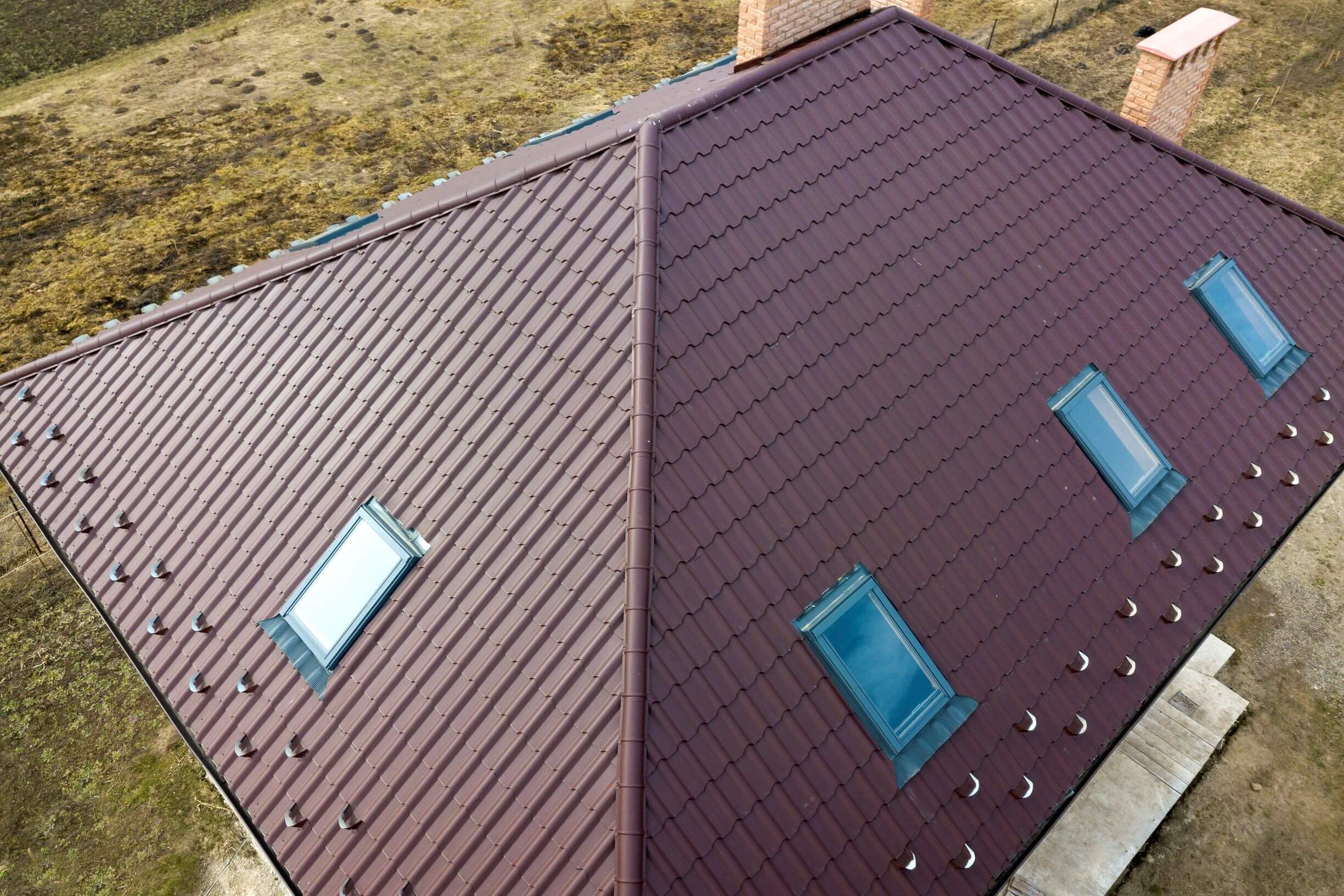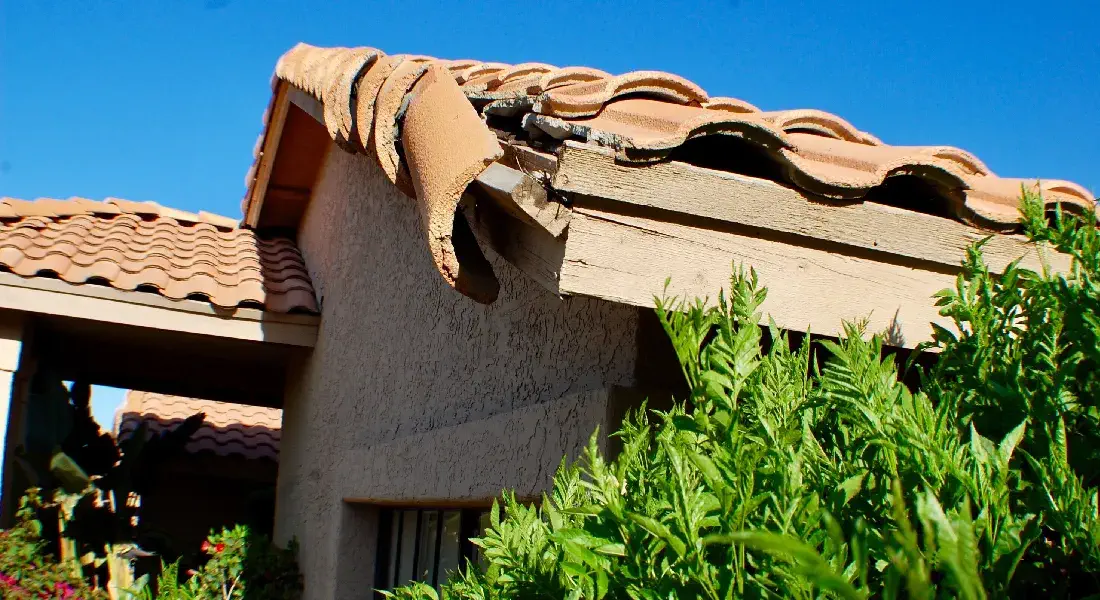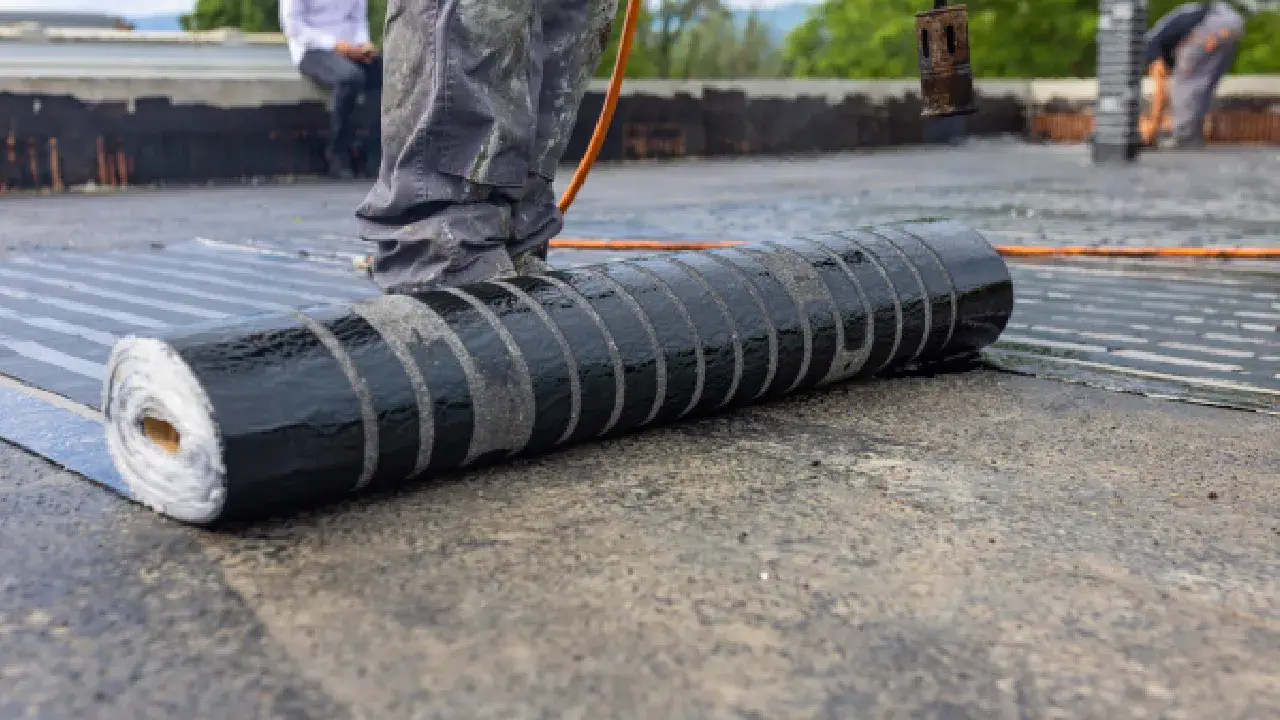Nothing is as brutal as a Houston summer, and nothing is as wet as a Houston winter. Nothing takes the brunt force of Texas weather as your roof does. That’s why it’s so important to find the perfect and most durable roof for your home. We want to help you find a well-suited roof for your home, so we’re introducing you to a modern roofing solution that may have you rethinking your traditional shingled roof.
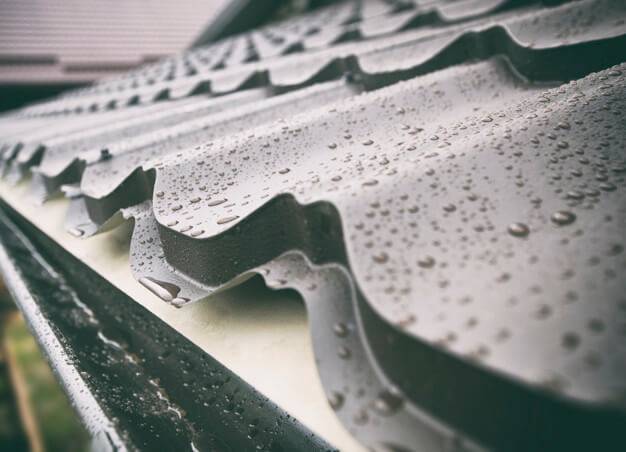
Weighing the Pros and Cons of a Metal Roof
Won’t a metal roof make a house hotter, attract lightning during tornado season, or fly off during high winds? These are some of the popular misconceptions or myths about metal roofing you may have heard. Guardian Roofing has put together the following pros and cons list of a metal roof in Houston so that you won’t have to rely on myths for your next roof purchase.
Pros of Metal Roofs
Discover the advantages metal roofing offers for your home.
Metal Roofs Can Last Longer Than Shingled Roofs
In moderate weather conditions, most shingled roofs have a lifespan of 20 to 25 years. A metal roof can last twice as long. With an average 50-year life span, metal roofs are your best bet if you’re looking for roof longevity, especially in climates as intense as Houston’s climate. Zinc and copper roofs can last even longer; as they can hold up for over 100 years. Metal roofs are also known to withstand winds of 140 mph, not fade under intense periods of sunlight, and shed rain and snow with ease.
Metal Roofs Are Energy-Efficient
Metal roofs deflect light and heat instead of absorbing it. Metal roofs can lower your cooling and heating costs by 25% a month, thanks to their reflective properties. You can also have them painted with extra reflective pigments, enhancing the roof’s reflective properties and keeping you cool, even under the hot Texas sun.
Metal Roofs Are Environmentally Friendly
Metal roofs can help lower your monthly energy bill. At least 30% of the metal used to make the sheet of metal roofing has already been recycled. This quality makes them great alternatives to asphalt shingles, which rely heavily on fossil fuels during production and require frequent replacements.
Metal Roofs Are Noncombustible
Most metal roofs have a Class A fire rating, which means they provide superior protection from sparks and embers. Some asphalt shingles also have a Class A fire rating; however, wood shingles have a Class C fire rating, meaning they are somewhat protective against embers and intense heat but are still much more flammable than metal or asphalt roofs. Since central Texas can experience wildfires, it’s always a good idea to ensure all parts of your home can handle a fire threat.
Cons of Metal Roofs
Metal roofs may not be suitable for homes under specific conditions.
Metal Roofs Can Be Quite Noisy
Some like the sound of a gentle rain against a metal roof, but a Texas hail storm might cause some to rethink a metal roof. The good news is that a professional can install a metal roof to minimize the sound, such as adding extra insulation under the roof or keeping an empty attic between the roof and your ceiling. With careful construction, you might not hear anything under a metal roof, no matter what the weather brings outside.
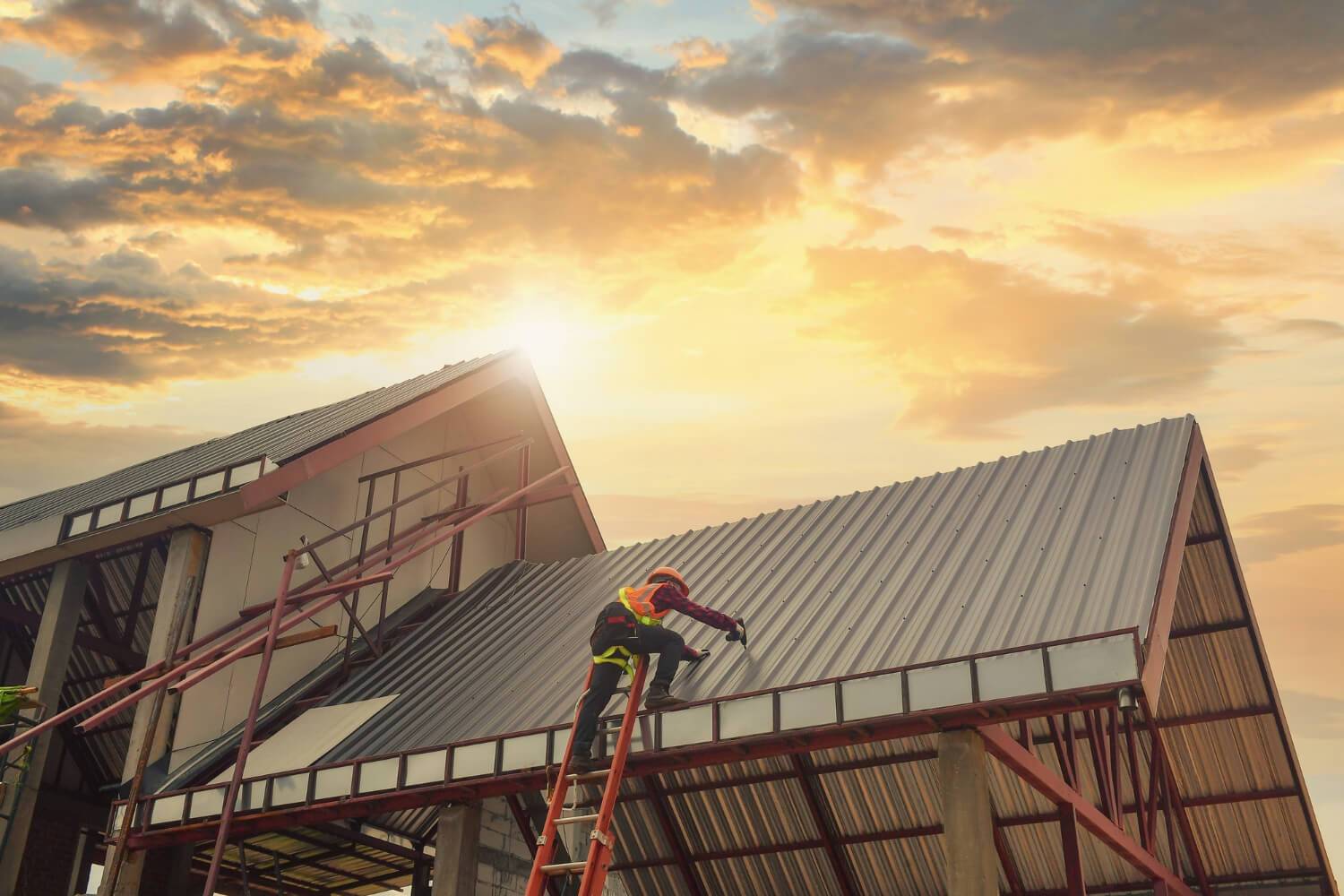
Metal Roofs Can Be Prone to Dents
Depending on the type of metal, metal roofs can be easily dented or bent. Roofs made of copper or aluminum are more prone to warp due to the softness of the metals. Some homeowners have reported that their copper or aluminum roof became dented after a hail storm. Others have said that their roof became dented after simply being walked over. Denting may concern local Houstonians who experience golf-ball-sized hail from storms quite regularly.
Steel roofs, however, are made of more durable metal and are less likely to bend than other metals. Steel metal roofs also come in sizes 24 and 26 gauge, offering maximum roof durability.
Metal Roofs Can Be More Expensive Than Other Types of Roofing Material
The biggest con of metal roofs is that they have significantly higher price tags than other roofing types. If you’re roofing an average-sized house, asphalt shingles will cost $4,000 to $7,000 for the material alone. A steel roof for an average-sized home will be approximately $5,000 to $7,000. A copper roof, which has twice the life span and twice the durability of a steel roof, will range from $10,000 to well over $25,000. Metal roofs are more expensive than shingles; however, you will need to replace a metal roof less often.
Metal Roofs Take Time to Install
Metal roofs require expert roofers for installation. If not installed correctly, a metal roof can cause homeowners many problems, such as unsecured seams, leaks, and a buildup of condensation underneath, which is a great way to invite mold into your house. Some metal roof manufacturers even require an experienced contractor with specific metal roofing installation accreditation to install your metal roof. Installing a shingle roof may be one thing, but installing a metal roof requires skilled and qualified hands to prevent disaster and promote longevity.
Luckily, metal roofing is becoming much more popular, so more and more contractors are gaining experience with the installation process. When installed correctly, you can put all of your fears about noise, heat, and hail damage to rest since a metal roof can withstand practically every weather condition that can occur in Houston, Texas.
If your home renovation budget allows for both the expense of a metal roof and the experience of a seasoned contractor, then a steel metal roof might be the suitable roofing option for you. Metal roofs are an investment for your home, especially when you live in a wet, hot, and weather-active climate such as Houston, Texas.
Roof Designs for Extreme Weather: How to Protect Your Home | Guardian Roofing – Houston, TX
